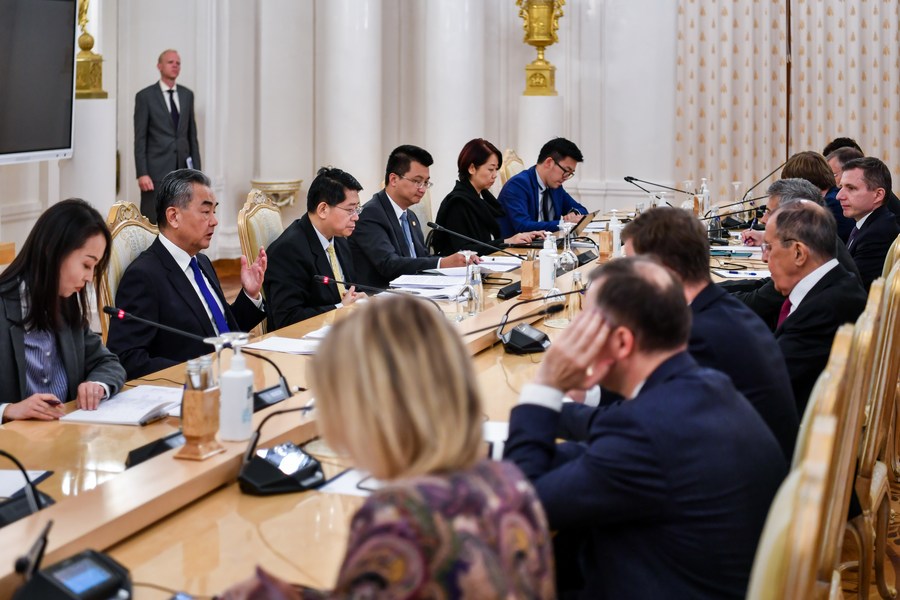FM: Relations don't target third party
By Zhang Yunbi | China Daily | Updated: 2023-09-20 07:27

Foreign Minister Wang Yi has stressed that China-Russia cooperation "does not target any third party, is not subject to disruption by any third party, and is not swayed by any third party", as he called on the two countries to adhere to true multilateralism.
Wang made the remarks on Monday in Moscow when meeting with Russian Foreign Minister Sergey Lavrov.
As major countries in the world and permanent members of the UN Security Council, Wang said that China and Russia bear important responsibilities for maintaining global strategic stability and promoting world development and progress.
The Chinese foreign minister said the two countries should further strengthen strategic cooperation, uphold genuine multilateralism, promote a multipolar world and advance global governance toward greater equity and fairness.
Noting that bilateral ties have maintained a sound and stable momentum of development, Wang said that this will continue to contribute to the development and revitalization of the two countries and bring important benefits to their people.
Lavrov said President Xi Jinping's successful visit to Russia and his meeting with President Vladimir Putin in March have set a clear direction for the future of Russia-China relations.
Russia is ready to prepare for the next high-level exchanges between the two countries, strengthen the synergy of the two nations' development plans, and deepen cooperation in various fields, he added.
Speaking on the Ukraine situation, Wang said China has consistently adhered to the right direction of seeking peace talks.
China "will play a constructive role in the political settlement of the crisis in its own way", he said.
Lavrov shared his views on the Ukraine crisis, saying that the Russian side will continue to be open to negotiations and dialogue.
Beijing issued its official position paper about the Ukraine conflict in February — China's Position on the Political Settlement of the Ukraine Crisis.
Lavrov hailed the document, saying that the Chinese position paper "takes into account the security concerns of all sides and is conducive to eliminating the root causes of the conflict".
At the talks on Monday, Beijing and Moscow spoke highly of the historic expansion of the membership of BRICS.
During the 15th BRICS Summit in Johannesburg, South Africa, last month, six countries — Argentina, Egypt, Ethiopia, Iran, Saudi Arabia and the United Arab Emirates — were invited to become new BRICS members.
Both sides "expressed willingness to work with all BRICS member states to build a greater BRICS platform of solidarity, cooperation and common development", the Chinese Foreign Ministry said in a release.
Lavrov said Russia will play its role as the rotating chair of BRICS and work with China to promote greater development of the BRICS cooperation mechanism.
On Tuesday, Wang co-chaired the 18th round of China-Russia strategic security consultation in Moscow with Nikolai Patrushev, secretary of the Security Council of the Russian Federation. The two sides exchanged ideas on stepping up strategic coordination and reinforced their mutual trust.
























